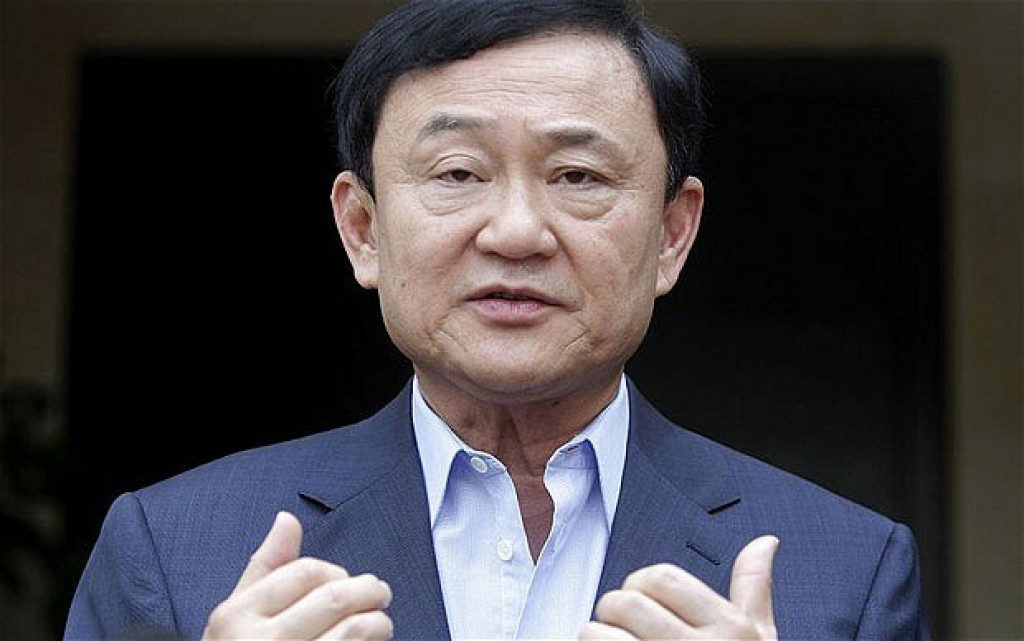5G in Africa: What’s its potential, Selasi Ahorlumegah?
Naa Oyoe Quartey
With its fast speeds and revolutionary potential, 5G stands out as a noteworthy milestone in the field of […]

Thaksin Shinawatra, who was removed from power in a coup in 2006, made his first return to Thailand in 15 years, creating a significant political stir on a day when the country’s Parliament was scheduled to select a new prime minister. Upon his arrival in Thailand, Thaksin was promptly apprehended and placed in detention.
Thaksin had been living in self-imposed exile primarily to evade a 10-year prison sentence related to charges of corruption and abuse of power associated with his telecommunications business and his tenure as prime minister. The majority of these charges were tried in his absence, and he was found guilty of several of them.
On the day of his arrival, a large crowd of supporters gathered along the roads leading to Don Muang International Airport in Bangkok. With dancing and singing, they enthusiastically awaited his plane’s touchdown. As he emerged, Thaksin paid his respects to portraits of the king and queen, while his supporters chanted his name. Shortly thereafter, he was taken to the Supreme Court, where he learned he would be sentenced to eight years in prison due to his involvement in three separate corruption and abuse-of-power cases.
A decade ago, the notion of Thaksin returning to Thailand was unthinkable. He was perceived as a threat to the affluent strata of Thai society, with his influence deemed so perilous that it led to both a coup against him and later his sister, Yingluck Shinawatra. His name invoked bitter divisions between the “red shirt” supporters from the rural north who backed Thaksin and the “yellow shirt” faction, consisting of royalists and the urban elite, who opposed him. These two groups frequently clashed on the streets of Bangkok, resulting in violent and deadly confrontations.
However, as Thailand grapples with the challenge of electing a new leader, Thaksin is now seen as a potential mediator—a figure who could represent the interests of the establishment while helping the nation navigate its political impasse. Speculation abounds that his return may be linked to a deal with influential royalists aimed at reducing his prison sentence in exchange for maintaining the military and conservative establishment in power.
Since the general election in May, which saw the progressive Move Forward Party led by Pita Limjaroenrat emerged victorious, Thailand had yet to name a new prime minister. Pita’s party had pledged to reform the monarchy and the military, but his path to office was effectively blocked by allies supporting these institutions.
Thaksin’s return reflected his confidence in Pheu Thai, the populist party he established in 2007, to form a government and select a prime minister, in whom, he was evidently overconfident.
At a recent press conference, Thaksin’s youngest daughter, Paetongtarn Shinawatra, asserted that her father would not engage in politics upon his return to Thailand, but few Thais believed this claim. Party members still looked to the charismatic 74-year-old billionaire for guidance, and his policies, such as the widely praised $1 healthcare programme and support for farmers during his tenure as prime minister from 2001 to 2006, remain popular in Thailand.
But as the day progressed, the day in which Thailand’s Parliament voted in Srettha Thavisin as their new prime minister, Thaksin’s return and perceived influence came to an abrupt end, and he was placed in detention. Thais might not hit the streets in his defence, as Thaksin no longer wielded the same level of control over the Thai public as he did a decade ago. A new generation of young Thais see him as a self-serving politician focused on orchestrating his dramatic homecoming. In his absence, other charismatic figures like Mr. Pita, the leader of the Move Forward Party, rose to prominence, appealing to an electorate disillusioned with the politics of the past.

With its fast speeds and revolutionary potential, 5G stands out as a noteworthy milestone in the field of […]

Let me take you on a captivating journey through my intriguing conversation with Antonia Azoitei, a versatile artist […]